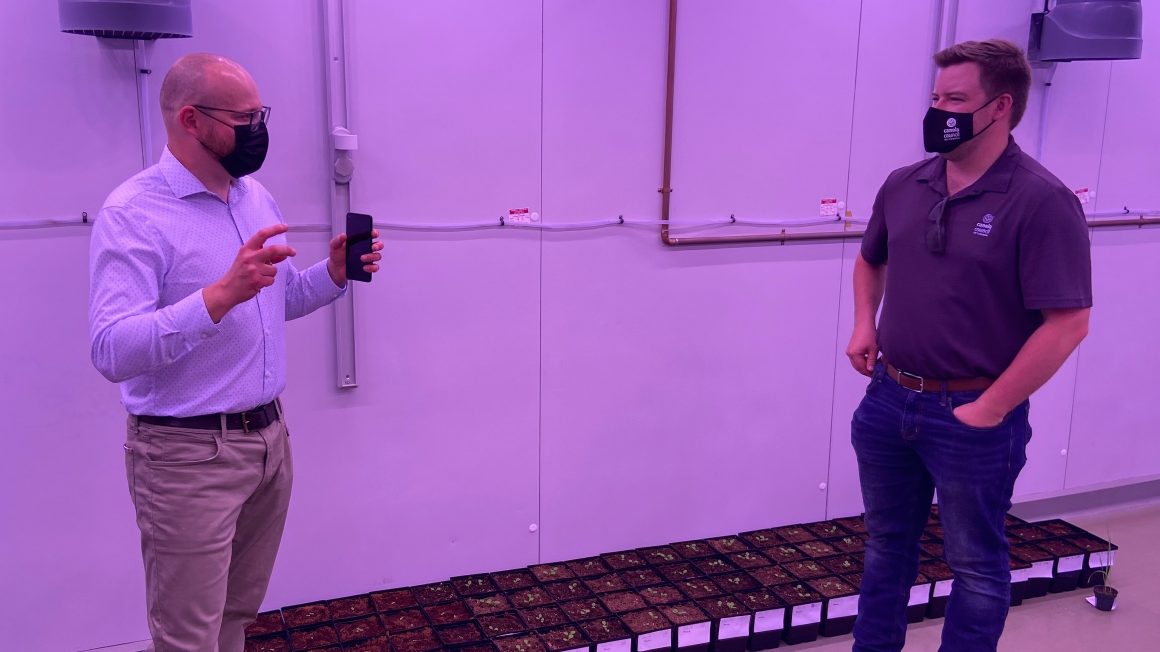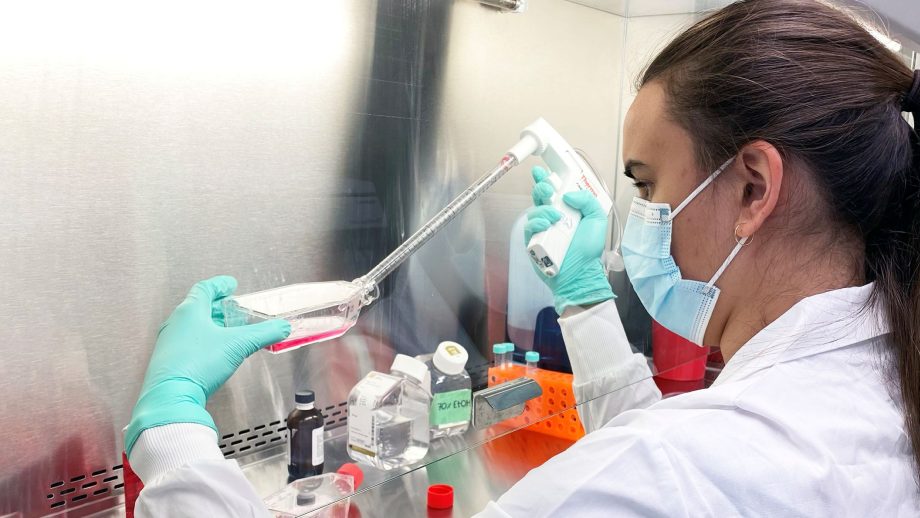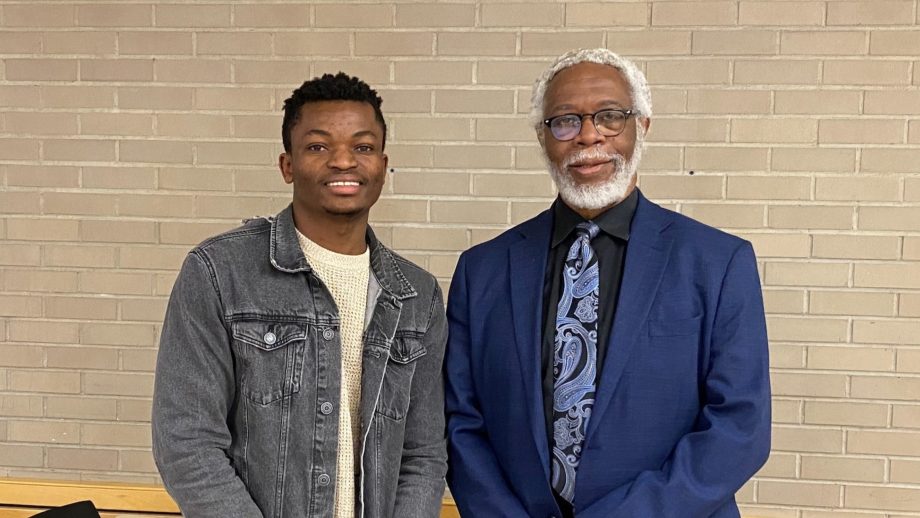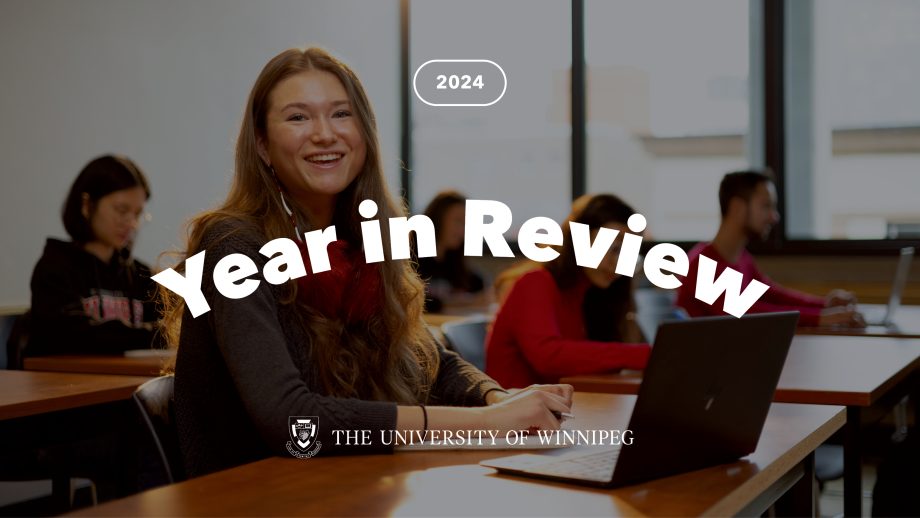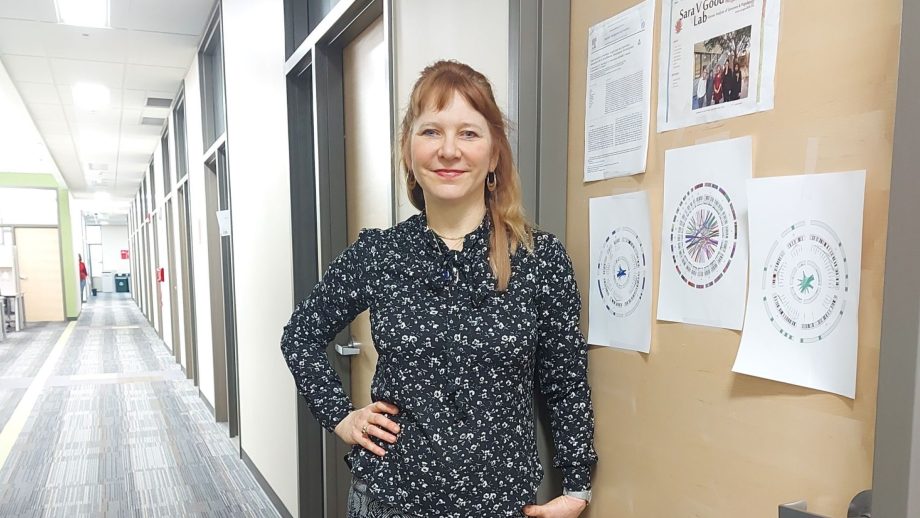Agronomy specialists from the Canola Council of Canada recently visited The University of Winnipeg to get a closer look at the TerraByte project and gain valuable insight into the team’s cutting-edge research and innovation.
Over the course of a brief presentation, representatives from the Canola Council of Canada learned about the current processes and progress of the TerraByte team’s data collection and machine-learning capabilities from Drs. Christopher Bidinosti and Christopher Henry, the project’s principal investigators. In addition, Bidinosti and Henry explained the aims and goals of the project while fielding questions about the possibilities and potential applications of the technology.
Henry said the team was overjoyed to showcase its work to the council.
“The Canola Council of Canada has its fingers on the pulse of the latest developments in canola-related agriculture in Canada, and they have industrial and academic contacts across the country,” said Henry. “A request by the council to showcase our facilities is very important as it means our work is unique. Meeting with the council will help disseminate our results and contribute to knowledge mobilization, both of which are two fundamental goals of our research.”
Canola Council of Canada representatives were also given a tour of the facilities at UWinnipeg, including demonstrations of imaging technology and data collection being undertaken by the TerraByte team.
Chris Manchur, Agronomy Specialist for Eastern Manitoba for the Canola Council of Canada, explained agronomy specialists aim to provide canola production information to farmers and agronomists across the Prairies, including best practices for crop establishment, nutrients, pests and harvest. As such, the Canola Council and its agronomy specialists are always seeking new products, techniques and technology to improve yields while also reducing the inputs required per tonne of oil and protein produced, as well as new ways to share information in a way that enhances understanding.
“The imagery, machine learning, and database development provided by TerraByte has the potential to help farmers and agronomists visualize proper canola staging, identify weeds in their fields, and aid in applying pest control products and technologies,” Manchur added.
Led by Bidinosti (Department of Physics) and Henry (Department of Applied Computer Science), TerraByte is innovating in the agricultural space by conducting research revolving around machine learning applications, including the generation of labelled plant data, machine learning models, and a plant image database that can be utilized industrywide. In 2019, UWinnipeg, in partnership with EMILI, received $2.4 million from Western Economic Diversification and $250,000 from a Weston Seeding Food Innovation Grant. The project has since received further funding from Mitacs and has cultivated industry and academic partnerships across the country.

